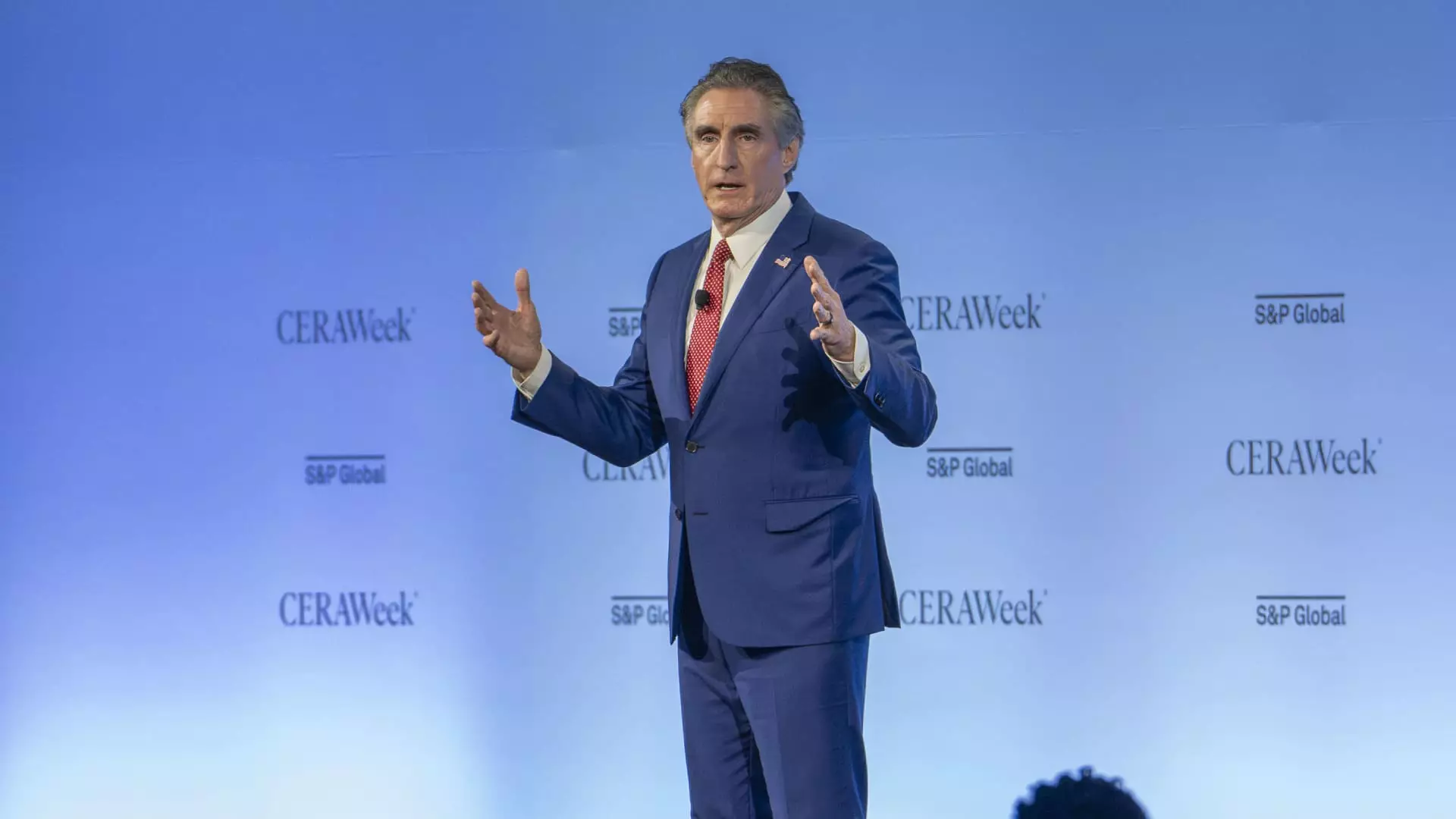In a recent conference, top officials from the Trump administration sent a clear message: the oil, gas, and mining industries are back in the spotlight, and they have a staunch ally in Washington. With Interior Secretary Doug Burgum stating unequivocally that climate change is not an existential threat, the framework of America’s energy policy seems rooted in an archaic view of industrial preparedness. This standpoint prioritizes short-term economic gains over long-term environmental considerations, positioning the administration as a champion for fossil fuel industries at a time when a shift towards renewable energy should arguably be the priority.
Burgum’s analogy of resource extraction companies as “customers” echoes a financial mindset that fails to grasp the complex interplay between profit and planetary health. His remarks reduce environmental stewardship to mere economic transactions, ignoring the broader implications of drilling, mining, and resource exploitation. This approach invites an array of ethical and pragmatic questions about the sustainability of such an agenda given the pressing realities of climate change, which, despite the administration’s claims, continues to pose significant risks to both the environment and public health.
A Questionable Interpretation of Value
One of the more shocking assertions made by Burgum was that the value of America’s natural resources vastly outweighs the country’s $36 trillion debt. While discussions surrounding a country’s balance sheet are indeed pertinent, equating natural resources solely with economic viability is dangerously reductionist. The notion that financial markets would appreciate natural resources more fully, thereby decreasing interest rates, is laden with assumptions that overlook tangible risks and ethical considerations.
The equation of economic output with resource extraction poses a dire contradiction: it serves immediate financial needs while ignoring the long-term costs of environmental degradation. Burgum’s valorization of oil and gas seems to disregard the backlog of research indicating the disproportionate pressures that fossil fuels exert on climate stability. These factors dramatically alter the landscape over which economic forecasts are built. By advocating for unlimited resource exploration, the administration risks jeopardizing future generations’ ecological, social, and economic frameworks.
Dismissing Climate Priorities
Energy Secretary Chris Wright’s critique of a so-called “myopic” focus on emission reductions reiterates the administration’s dismissal of climate transition efforts. Dubbing climate change policies “quasi-religious” seems designed to paint environmental advocates as fanatics rather than prudent strategists committed to safeguarding our planet. Such remarks foster a polarized narrative in a time when balanced discourse should be encouraged. A failure to acknowledge valid concerns about emissions overlooks the necessity for a multi-faceted strategy to energy policy.
Wright’s assertion that renewable energy sources cannot meet rising demands is a contentious point. While it’s true that fossil fuels currently dominate the energy landscape, neglecting continued advancements in renewable technology misrepresents the potential of innovation and adaptation. Saying “there is no physical way” for renewables to substitute fossil fuels disregards the evolution of energy infrastructure and scientific breakthroughs that could significantly enhance the viability of wind and solar energy.
Industry Enthusiasm or Short-Sightedness?
The palpable enthusiasm from industry leaders regarding the Trump administration’s energy policies raises alarms about the direction of fossil fuel investments. ConocoPhillips CEO Ryan Lance might find the new energy team the best in decades, but is this optimism built on solid foundations, or is it merely a reprieve from the regulatory burdens of previous administrations? The collective sentiment from executives that the Gulf of Mexico is now the “Gulf of America” showcases the psychological shift back to resource exploitation without adequately addressing ecological repercussions of such nomenclature.
As concerns over the sustainability of U.S. oil production grow, an apparent paradox emerges between celebrating increased drilling opportunities and facing the reality of plateauing production. Claims that further pursuing growth—without concern for disproportionate environmental impacts—betrays an outdated understanding of both market dynamics and ecological responsibility. The notion that industries can continue to grow is outdated in an era that demands a transition to more sustainable practices and diversified energy sources.
The Limitations of Short-Term Gains
In the long term, the aggressive push for drilling and mining could spell disaster for both the environment and the economy. The impulse to “drill, baby, drill” reflects a mindset where immediate profits are prioritized over long-term resilience. Yet, as energy executives themselves acknowledge the plateauing of oil production, an urgent need for a more balanced conversation emerges—one where environmental concerns are integrated into economic discussions rather than treated as an afterthought.
The future requires innovative collaboration between energy production and environmental sustainability. Letting short-term gains dictate policy will not furnish a roadmap to a healthy, economically secure future. In this era of accelerating climate changes, an embrace of balance—not just profits—might provide the sustainable path that is desperately needed.

